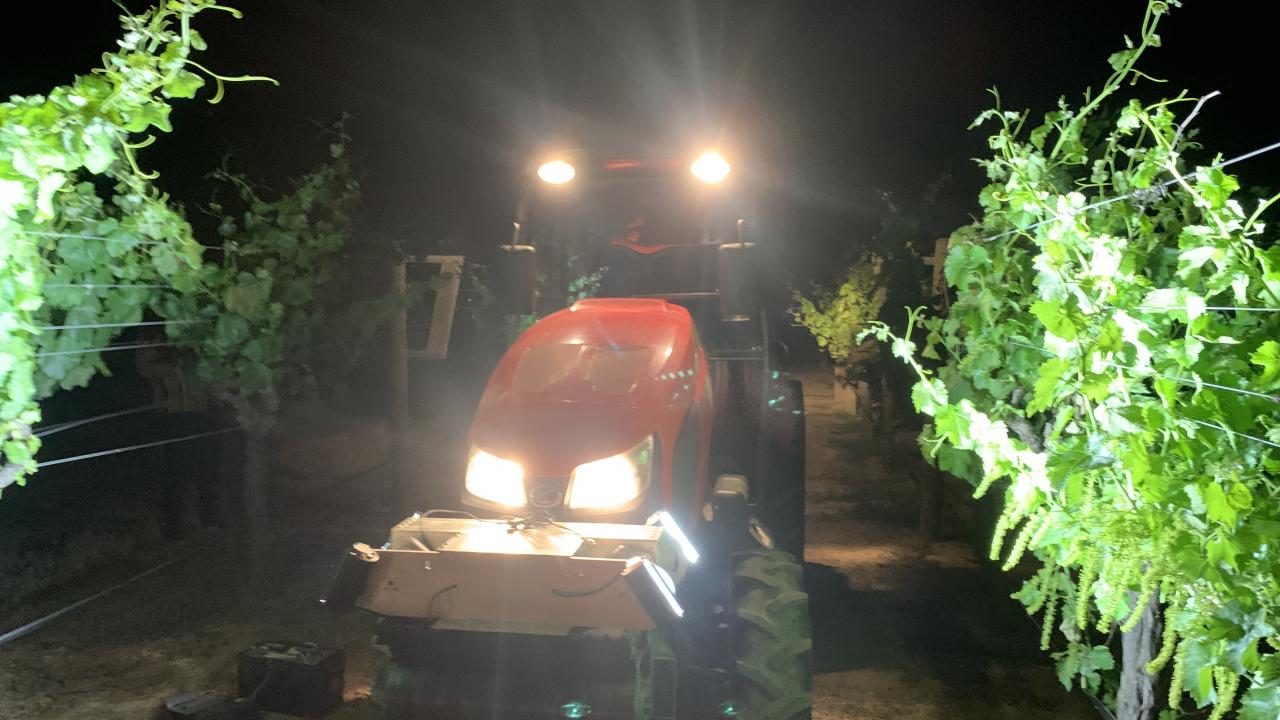
A new course, during the Winter 2021 quarter, VEN 198: Precision Viticulture, is taught by Assistant Professor of Viticulture and Enology and Biological and Agricultural Engineering, Mason Earles.
This course introduces students to the principles and practices of precision agriculture, applied to grape production. Precision agriculture is a data-driven approach to agricultural production that enables growers to sustainably manage farms to maximize yield and quality, while minimizing resource consumption and waste. To do this, sensors generate raw data that is processed to create actionable information for growers to make management decisions, guide mechanization, and automate labor-intensive processes. The class focuses on precision agriculture approaches to key viticultural practices of canopy, water, nutrient, and pest management, site characterization in terms of climate and environment, and ultimately harvest in terms of fruit yield and quality. The course covers the basic principles of global positioning systems (GPS), proximal and remote sensing, data management and analysis, and viticultural mechanization. Students are introduced to computational techniques and software for managing and analyzing a rapidly increasing volume of agricultural data. They combine the basic principles of precision agriculture and computational skills learned in this class to analyze real precision viticultural data. Guest lectures from professionals within the grape and wine and agricultural technology sectors introduce students to how precision viticulture is currently adopted today, and where it’s heading in the future. Guest lecturers during the Winter 2021 Quarter included: Terry Bates (Cornell University) Brent Sams (E&J Gallo), Kaan Kurtural (UC Davis), and Tom Shapland (Tule Technologies).
The class was delivered through a combination of Zoom and computer lab sessions.
